Bridge to the Other Shore
An Online Course for Aspiring EcoSattvas
How might we most thoroughly express our love for this life and all life? What does it mean to express a mindful, compassionate response to climate change? What new ways of relating to ourselves, one another and the world does this wisdom tradition call us into?
Courage, Connection and Devotion
This fall both series of EcoSattva Trainings, “The Sickness is Medicine” first run in 2015 and “Bridge to the Other Shore” first run in 2017, will be available. All sessions are recorded so you can register and begin at any time.
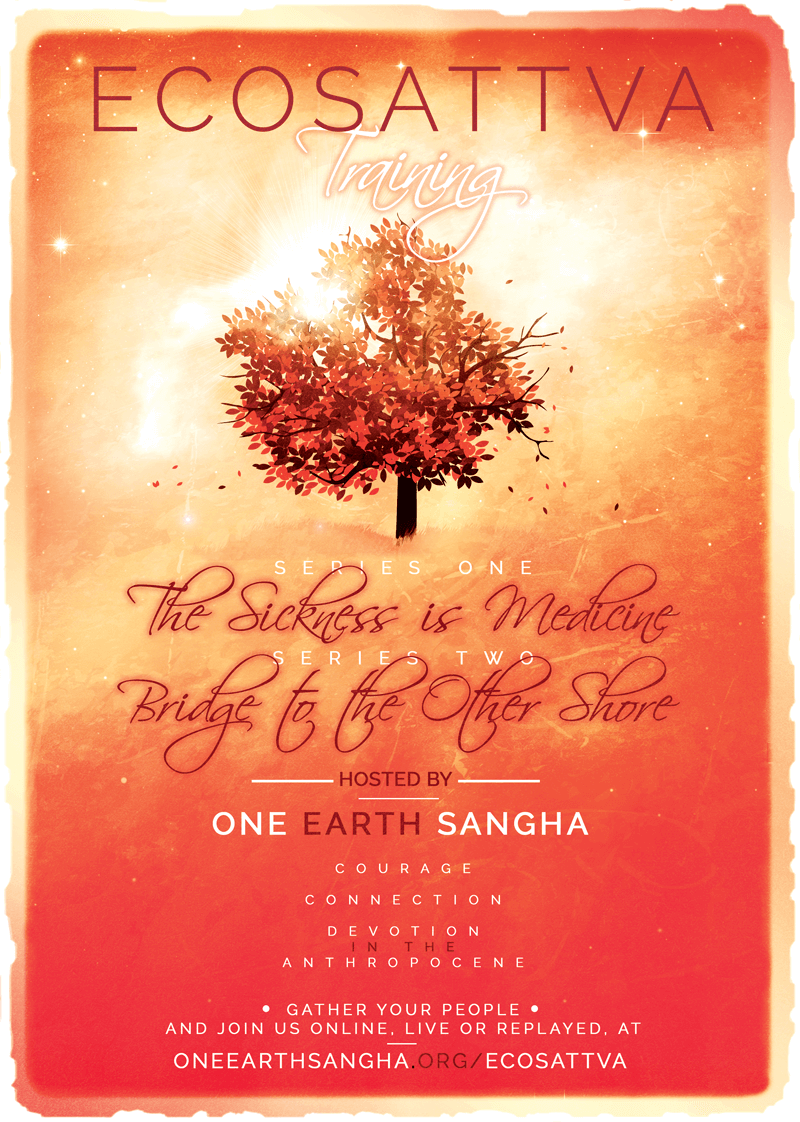
[members_not_logged_in]
Register Here.
[/members_not_logged_in][members_access role=”est17_subscriber”]
Access course materials and other information » here «.
[/members_access]
- Overview: Course Description
- Understand the purpose and outcomes from the course: Who’s This For?
- Who’s on Point: Session Leader Bios
- Hear from Others: Testimonials from past participants
- Come together! Learn about Online and In-Person Groups
- Session Format and Content
- Logistics: Registration fee and dana
- Spread the Word: Sharing resources like flyers, email and post templates
- Help Wanted: Find out about volunteer opportunities
- Questions: We might have the answer in our Frequently Asked Questions
Course Overview
Our Growing, Collective Crisis
Our collective crisis is deepening. Informed by a view of reality which presumes separation and competition, many powerful institutions and institutional actors are actively investing in separation: our religious affiliations, national, racial and ethnic identities, rich and poor, human and nature.
At the same time, we see a renewed sense of citizenship and empowerment forming in resistance. But is resistance to these forces the extent of our vision? Can we respond to this moment not merely as a crisis in our politics or even culture but instead as an opportunity to confront and transform the world views, the ways of seeing reality, that brought us here? What are the wisdom and practices that will not only help us respond to current conditions, but sow the seeds of the courage, connection and devotion needed as our world enters a period of dramatic change?
Among many gifts, the Dharma invites us to cultivate qualities of the heart and clarity of the mind. In particular, we are encouraged to contemplate View, the way we are seeing, the stories we tell and what we consider to be reality. With practice, we can see the way our stories are conditioned into existence and taken as truth. Moreover, we can see where our stories lead and ask if this is where we want to go. As the narratives of dominant culture break, the mistaken views exact their cost, as the consequences of conflict exceed our grasp, the way of the contemporary Bodhisattva may be forged with a devoted heart and dexterity with View. Following our longing and our love for this world, each of us can cultivate the heart-mind that meets this moment. With courage, connection and devotion, we can together forge a path that responds to a troubled world.
As both a longtime Buddhist and a social justice activist, I have taken the EcoSattva course twice and will participate again this fall. Learning through the eyes of various teachers the many ways that Buddhism expands one’s ability to look at what is befalling Earth and, through the enormous grief that brings, to love more beings more fully provides me with immeasurable resiliency.
— 2015 Participant in EcoSattva Training
The course opens with grounding, affirming connection and setting our intentions. Over the course of six sessions that follow (seven total), we will explore
- Wisdom: How might we understand our collective crises, how they come into being and how they might be unmade?
- Practices: what internal and relational practices can help us remain present, grounded and connected
- Ethics: How do we cultivate unwavering devotion and respond with fierce compassion?
We hope you’ll join us, either individually or with a group, as we cultivate courage, connection and devotion in the age of the Anthropocene.
Session Leaders
…the energy and profundity of the series was tangible. I have been feeling ‘pushed’ in my personal life around the subject of the environment and so it was really wonderful to dive deeper into the struggle with so many wisdom figures whose message was ‘yes, this is reality, and we have the spiritual tools to hold this.
— 2015 Participant in EcoSattva Training
Special Guest
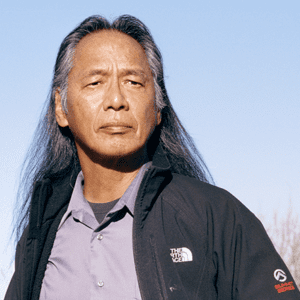
Ron His Horse is Thunder is is a member of the Hunkpapa-Lakota Oyate. He served as the tribal chairman of the Standing Rock Sioux Tribe from 2005 – 2009. Ron is the great-great grandson of One Bull, the nephew and adopted son of Sitting Bull, the Hunkpapa Lakota Nation Chief. He served as president of Sitting Bull College (formally Standing Rock College), as a commissioner for the Higher Learning Commission for the North Central Accreditation for Schools and Colleges and as a member of the boards of the American Indian Higher Education Consortium and the North Dakota Tribal College Association. In 2002, President George W. Bush appointed him as Chairman of the President’s Board of Advisors on Tribal Colleges and Universities; he continues to serve today. Former Chairman His Horse Is Thunder received his juris doctor degree in 1988 from the University of South Dakota, School of Law. In 1985, he earned a bachelor of science degree from Black Hills State University. Former Chairman His Horse Is Thunder is married to Deborah Wetsit-His Horse Is Thunder.
Session Teachers
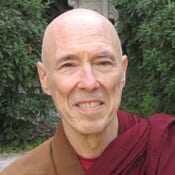
Venerable Bhikkhu Bodhi is an American Buddhist monk and translator of Pali Buddhist texts. He is also the founding chair of Buddhist Global Relief, an organization dedicated to helping communities worldwide afflicted with chronic hunger and malnutrition. He was appointed editor of the Buddhist Publication Society (in Sri Lanka) in 1984 and its president in 1988. Ven. Bodhi has many important publications to his credit, either as author, translator, or editor, including the Buddha — A Translation of the Majjhima Nikaya (co-translated with Ven. Bhikkhu Nanamoli (1995), The Connected Discourses of the Buddha — a New Translation of the Samyutta Nikaya (2000), and In the Buddha’s Words (2005).
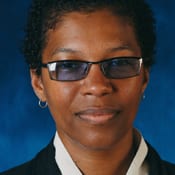
Rev angel Kyodo williams is a teacher, author, activist, master trainer and leader. She is co-author of Radical Dharma: Talking Race, Love, and Liberation and author of Being Black: Zen and the Art of Living With Fearlessness and Grace. Williams is the Spiritual Director of the meditation-based newDharma Community and founder of the Center for Transformative Change in Berkeley, California[3] and is also credited with developing fearlessMeditation, fearlessYoga and Warrior Spirit Training. More at the Center for Transformative Change.
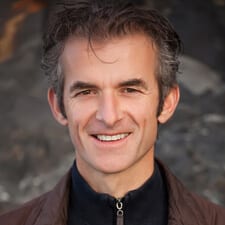
Mark Coleman has been studying meditation practices since 1981, primarily within the Insight meditation (Buddhist) tradition, and has taught meditation retreats since 1997. His teaching is influenced by studies with many great teachers in the Buddhist tradition as well as from Advaita and Tibetan teachers in Asia and the West, and through his teacher training with Jack Kornfield. Mark primarily teaches at Spirit Rock Meditation Center, as well as internationally in Europe and India. The author of Make Peace with Your Mind and Awake in the Wild, Mark is also a corporate consultant, individual counselor, poet, wilderness guide, and outdoor adventurer. He lives in the woods in Marin County, and likes nothing more than wandering in the mountains of the Sierra Nevada.
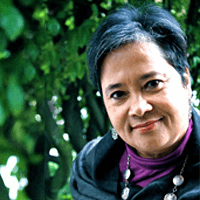
Bonnie Duran has been practicing mindfulness meditation since 1982. She has taken teachings from western teachers including Joseph Goldstein and Marcia Rose, as well as Tibetan teachers Venerable Tsoknyi Rinpoche and Lama Zopa Rinpoche. She is one of the founders of The People of Color Sangha in Albuquerque, New Mexico, and in Seattle, Washington; is a graduate of the Spirit Rock teacher training program and Community Dharma Leader 3 training program at Spirit Rock Meditation Center. Bonnie is also involved in Native American spiritual practices and traditions. She is a contributor to Hilda Guitierrez Baldoquin’s book, Dharma, Color and Culture: New Voices in Western Buddhism (Parallax), and has written for the Turning Wheel Journal of Engaged Buddhism..
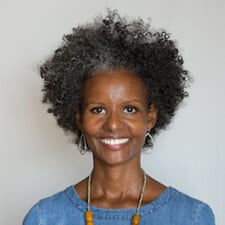
Sebene Selassie is a dharma teacher and transformational coach. She began studying Buddhism over 25 years ago at McGill University where she received a BA in Comparative Religious Studies and Women’s Studies. She has an MA from the New School where she focused on race & cultural studies. For over 20 years she worked with children, youth, and families nationally and internationally for small and large not–for–profits and is the former Executive Director of New York Insight. Currently she serves on the board of the Barre Center for Buddhist Studies and is a meditation teacher for the 10% Happier App. She is a graduate of the Community Dharma Leader (CDL4) program at Spirit Rock and is training as a retreat teacher with her primary teachers, Thanissara and Kittisaro. Sebene is a three–time cancer survivor..
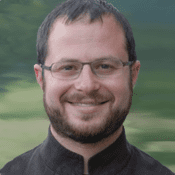
Adam Lobel is a senior teacher (acharya) in the Shambhala Buddhist tradition and a scholar of religion and philosophy. He brings a genuineness and direct experience to the spiritual path and everyday life. In addition to leading programs worldwide, he has taught meditation in the juvenile prison system and is involved in numerous ecological and social transformation initiatives. Adam holds a master’s degree from Harvard Divinity School, where he helped establish a track for Buddhist ministers. He continues his doctoral research at Harvard University.
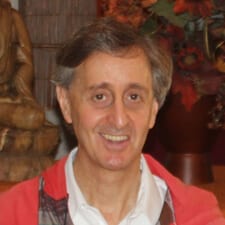
Donald Rothberg is a member of the Teachers Council at Spirit Rock and teaches regularly at East Bay Meditation Center. He has practiced Insight Meditation since 1976, and has received training in Tibetan Dzogchen and Mahamudra practice. Since he was in his early 20s, he has been deeply committed to connecting social change and spiritual practice, and has written extensively on socially engaged Buddhism, including The Engaged Spiritual Life: A Buddhist Approach to Transforming Ourselves and the World. He has helped to guide six-month to two-year training programs in socially engaged spirituality through Buddhist Peace Fellowship, Saybrook Graduate School, and Spirit Rock.
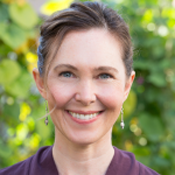
Lama Willa Miller has studied and practiced in the Tibetan Buddhist tradition for the last twenty years in the non-sectarian Kagyu, Nyingma and Shangpa lineages of Tibetan Buddhism. Her teaching specialties include natural meditation (mahamudra), heart-cultivation (lojong), deity practice, and practices for deep retreat. She is interested in the practical integration of meditation into daily life, and the power of nature to inspire authentic presence. She is an author, a visiting lecturer in Buddhist Ministry at Harvard Divinity School and the founder/spiritual director of Natural Dharma Fellowship and Wonderwell Mountain Refuge.
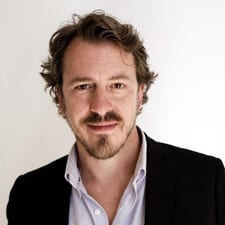
Colin Beavan, PhD attracted international attention for his year-long lifestyle-redesign project and the wildly popular book and film, No Impact Man. He is a coach and consultant, ran for the US House of Representatives in 2012, is the founder of the No Impact Project, a board member of Transportation Alternatives, an advisory council member of 350.org, a guest professor at Sarah Lawrence College and a senior dharma teacher in the Kwan Um School of Zen. He is the author, most recently, of How to Be Alive: A Guide To The Kind of Happiness That Helps The World.
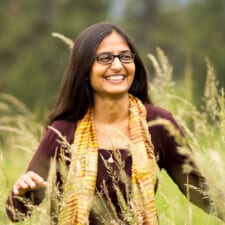
Kritee (dharma name Kanko), is a Zen teacher, scientist, activist, dancer and permaculture designer. She directs and teaches Boundless in Motion Sangha in Boulder in the Rinzai-Obaku Buddhist lineage of Cold Mountain, is a co-founder and executive director of Boulder Eco-Dharma Sangha and co-founding teacher of Earthlovego. Kritee trained as an environmental microbiologist and biogeochemist at Rutgers and Princeton Universities. As a senior scientist in the Global Climate Program at Environmental Defense Fund, she is helping to implement environment and climate-friendly methods of small farming at large scales in Asia with a three-fold goal of poverty alleviation, food security and climate mitigation / adaptation.
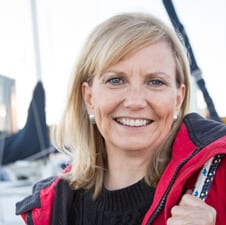
Spiritual ecologist Heather Lyn Mann is a practitioner of Buddhism, sailing, and mindful advocacy. After earning a Master’s in Environmental Science from University of Wisconsin’s Nelson Institute, she founded and led Wisconsin’s Center for Resilient Cities—a not-for-profit mobilizing inner-city residents to restore natural beauty and function in damaged neighborhood landscapes. A mindfulness practitioner in the Plum Village tradition, Zen Master Thích Nhất Hạnh ordained Mann into his core community of practice—the Order of Interbeing. In 2007, Mann set sail on a six-year, 15,000-nautical-mile ocean voyage. Ocean Of Insight: A Sailor’s Voyage from Despair to Hope is the memoir of her spiritual voyage sailing in the company of the Great Atlantic Teacher. Back on land in 2014, Mann co-founded and led the International Plum Village Earth Holder Sangha — a mindfulness community working to awaken humankind’s great togetherness with the earth. Now a resident of greater-Charleston, SC, Mann co-launched Higher Ground — a collaborative of spiritual and thought leaders, scientists, artists, and others organizing to transform climate consciousness.
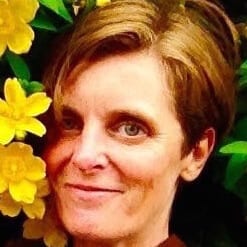
Based at the Ecodharma Centre in Catalonia, Lindsay works with activists from across Europe, designing and delivering programmes around engaged Buddhism and sustainable activism. In 2016 she helped launch the Ulex Project, an education centre which combines personal, inter-personal and political transformation. As an activist she’s worked with Reclaim The Power and the Dharma Action Network for Climate Engagement, and is is currently training in Social Presencing Theatre to combine somatic practice with her social change work. Lindsay practices with both Tibetan and Insight traditions and took refuge with Lama Zopa Rinpoche in 2002.
Session Hosts
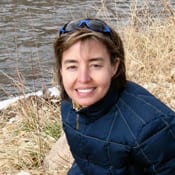
Kristin is co-founder and director of One Earth Sangha. In her commitment to collective awakening, Kristin is a graduate Spirit Rock‘s Community Dharma Leaders program, serves on the board of the Insight Meditation Community of Washington, DC and co-founded White Awake whose mission is to develop awareness of race dynamics among white people engaged in spiritual communities and progressive causes. She has worked as an independent consultant and staff member at several environmental organizations in Washington, DC.
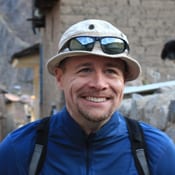
Lou is co-founder of One Earth Sangha, an environmental lawyer, a teacher and the leader of the climate change program at World Wildlife Fund which he joined in 2008 after a year on the staff of the Obama for America campaign. He also serves on the board of directors of the US Climate Action Network. Lou came to the Dharma as a response to the challenges of working on climate issues and practices within the Insight Meditation Community in Washington.
Who is the Training for?
The term “EcoSattva” is a blend of “eco” or “ecology” with “Boddhisattva,” an enlightened being wholly dedicated to the freedom and well-being of others. This training will help aspiring EcoSattva’s:
- Understand ecological crises from the perspective of the Dharma
- Develop Sangha by connecting with other EcoSattvas
- Inspire “appropriate response” as a form of practice, deeply rooted in the Dharma
Whether you’re an EcoSattva trainee from years previous, new or steeped in meditation/Dharma, new or steeped in engagement on socio-ecological issues or new to all of this, One Earth Sangha invites you to gather your people and join us. Participants will become familiar with the diverse and powerful body of response, and learn how to tailor their aspirations and abilities and ground them in the demands of their local situations. Together, we’ll explore this time of intensifying change and cultivate the wisdom and practices that can carry us forward.
Gather Your People: Join or Form a Group
It really is Better Together. (And cheaper!)
We encourage and actively support the formation of local or virtual small groups that will participate in the course together. Engaging with climate change is a chance to collaborate – and we will need to! To engage together is to know that we are not only part of the web of life, but also a part of the web of support and action. These groups provide an opportunity for people to engage in the training and receive support along the way all while deepening relationships with others.
You may choose to form your own group with people from your local sangha. Alternatively, you might form or join an online groups. If you want to register your in-person or online group as open to others, we’ll help you find members who can join you. Registered groups, whether open or closed, with three or more members receive a discount on registration fees. No credentials are required, just the willingness to step up and organize a regular time for your group to meet. Group members need only provide the name of the group to receive the group discount.
Session Format and Content
Sessions follow the same format and consist of the following five components:
- Background material (or “homework”) to help you get the most out of the session event
- The heart of each session offering is the video featuring our guest teachers. We recommend that you schedule at 2 to 3 hours (if you want to include breaks), for a session (see ideas for time and structure below). The session generally includes
- Opening, short gathering of attention, presentations from the featured leader,
- One or more inquiry questions for you to explore individually or in break out dyads or triads within your group. Note that because of platform limitations, the opening and closing sessions will not include online breakout groups. (We are sad about this too!)
- “Harvest” (or question and answer) period where members of the community converse with the presenters,
- On some sessions, a science and policy update from Lou Leonard
- Closing including what’s next and the invitation to offer generosity.
- Practices: to deepen your exploration and building on the inquiries offered during the webinar, each session will offer a question for you to take into your meditation practice (as a contemplation) or into 2 or 3-person small groups or even larger group interactions. You are invited to share your reflections on the session page in the community discussion (see last item).
- Follow up materials provided by the course organizers and featured speakers should you want to go deeper with what was presented.
- At the base of each session resource page, we’ll host a community discussion where you can share your questions or reflections with other participants in the course.
Access and Fees
We invite the practice of generosity (“dana” in Pali) to support the course teachers and moderators. Registration fees cover direct costs and time associated with producing and supporting the course. To accommodate differences in financial means, fees are available on the following sliding scale:
- EcoSattva Base rate: $140 (equates to $20 per session)
- Sponsor an EcoSattva rate: $200
Covers self plus one other participant at the scholarship rate. - EcoSattva Sustaining rate: $300
Covers self plus one other participant at the scholarship rate as well as the work of One Earth Sangha. - Member of a registered group: $100 ($40 discount)
See “Gather Your People” above and provide the name of your registered group. If you want to organize a group, in person or online, register your group name here. - Scholarships: Thanks to the generosity of other members, we offer scholarships to those who lack the financial means to participate. We will do our best so that no one will be turned away. To apply for scholarship funding, please fill out this form.
Upon registration and within the course, we invite participants to offer dana or generosity to support the teachers who lead sessions and the ongoing work of One Earth Sangha.
Spread the Word
Here are some starting points for sharing followed by some template text you might customize for a newsletter, email, or facebook post.
- Post this [download id=”7643″] on notice boards in your community
- Share this graphic, this or this one.
- Share this page in an email: oneearthsangha.org/ecosattva
- Share this post and/or this event on facebook
- Retweet this
Amidst extraordinarily challenging times, we are called to deepen our commitment to wisdom and active compassion.
How might we most thoroughly express our love for this life and all life? What does it mean to express a mindful, compassionate response to climate change, other ecological crises and the complex web of related social challenges? What new ways of relating to ourselves, one another and the world does this wisdom tradition call us into?
[if you’re forming a local group] Join members of our local community as we participate together in the EcoSattva Training from One Earth Sangha. Over the course of 8 weeks, we’ll be hearing from some of the most powerful voices today on the intersection of mindfulness, Buddhist practice and ecological crises. Speakers include Ven. Bhikkhu Bodhi, Rev angel Kyodo williams, Adam Lobel and many more. Learn more [your information here] and join us!
[if you just want to let your community know] Join members of the global community for this eight week course featuring some of the most powerful voices today on the intersection of mindfulness, Buddhist practice and ecological crises. Speakers include Ven. Bhikkhu Bodhi, Rev angel Kyodo williams, Adam Lobel and many more. Learn more here and join the wise and compassionate response.
Help Wanted
If you’d like to help us make the training happen, check out our volunteer openings. We’re especially in need of folks who can assist fellow participants in registration and participating in the course. In recognition for your generosity, the course is free to volunteers.
Words from Past Participants
Over the past years, over 1,500 EcoSattva’s have participated from all over the world.
I really appreciated feeling like a part of a Sangha on the topic of Climate Change. I didn’t realize how alone and isolated I felt on this issue until I really felt the support of all of you and the broader community. The feeling that we’re not in this alone and that we> As both a longtime Buddhist and a social justice activist, I have taken the EcoSattva course twice and will participate again this fall. Learning through the eyes of various teachers the many ways that Buddhism expands one’s ability to look at what is befalling Earth and, through the enormous grief that brings, to love more beings more fully provides me with immeasurable resiliency.
— 2015 Participant in EcoSattva Training
I see that, even though I am a long-term committed activist, there are many fears that I had not been wiling to look at before. Now I have the courage, doing this in a group, with this course really helped. I’m going to talk to the groups I protest with and get them interested in these topics.
— 2015 Participant in EcoSattva Training
The Dharma is a terrific lens through which to view ecoactivism. This has helped me think about ways to help others who are either overwhelmed or think no action can be sufficiently effective and have given up.
— 2015 Participant in EcoSattva Training
I was struck by the comprehensiveness of the connection between of all our world’s troubles. Racism, war, poverty, pollution, money in politics, weapons proliferation, agri-business, depletion of resources, drought and famine, climate change… all from greed and fear.
— 2015 Participant in EcoSattva Training
Gratitude
This training series benefits from the sage advice and loving support from so many in our community. In particular, we are grateful to our advisory panel, Mark Colemen, Catherine McGee, Chas DiCapua, James Baraz, Susie Harrington, Tara Brach and Thanissara.
Return here and follow us online over the next several weeks. We’ll be updating this page with all the details including session leaders, the full schedule, registration fees & scholarships, volunteer opportunities, how to form groups both on and offline, FAQ’s and more.